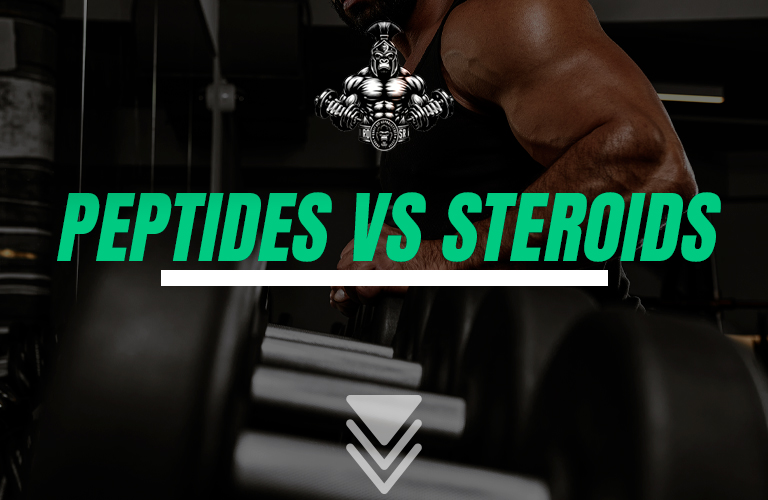
In the performance-enhancing community, peptides and steroids are recognized for their distinct roles and benefits, with each class of compounds catering to specific goals and mechanisms within the body.
Peptides are short chains of amino acids and function primarily through signaling pathways. They are recognized for their ability to target specific areas or functions in the body with minimal side effects. Their primary uses include boosting growth hormone production, aiding in recovery and healing, enhancing muscle growth indirectly through hormone stimulation, and providing specific benefits like increased fat loss, improved sleep, and enhanced skin health. Peptides are often perceived as a safer alternative to steroids because they can offer some of the anabolic benefits without the direct hormonal imbalances that steroids may cause. For instance, certain peptides can stimulate the body’s own production of growth hormone, leading to muscle growth and fat loss, without the risk of shutting down the body’s natural hormone production. This selective functionality makes peptides a popular choice for those seeking targeted enhancements while minimizing side effects.
Steroids, on the other hand, are powerful hormones (or hormone derivatives) that directly interact with the body’s hormonal receptors, particularly androgen receptors. They are known for providing significant increases in muscle mass, strength, and overall athletic performance. However, this comes with a higher risk of side effects, including but not limited to hormonal imbalances, liver toxicity, cardiovascular issues, and changes in mood or behavior. Steroids are often used for their potent and immediate effects on muscle growth and performance enhancement.
Despite their efficacy, the broader and more potent impact of steroids on the body’s hormonal system and other organs makes them a subject of controversy and caution within the community.
The differentiation in the community between peptides and steroids is not just about their biological actions but also about the balance between desired effects and potential side effects. While steroids are often associated with more dramatic gains in muscle mass and strength, they are also linked with significant health risks and legal issues. Peptides offer a more nuanced approach, providing benefits that are usually more subtle but with a lower risk profile, making them attractive to those looking for longevity in their careers or those who are more health-conscious.
Athletes and bodybuilders might stack these compounds together in cycles to maximize muscle gains, fat loss, and recovery while attempting to mitigate the side effects through careful dosing and post-cycle therapy. The consensus in the performance-enhancing community tends to favor a balanced approach, weighing the benefits of each compound against its risks and using them in conjunction with a well-structured training and nutrition program.
In summary, the perception and use of peptides versus steroids in the performance-enhancing community are informed by a trade-off between efficacy and safety. Peptides are often seen as a safer, more targeted option, whereas steroids are recognized for their potent and broad-ranging anabolic effects but with a higher risk of side effects.


